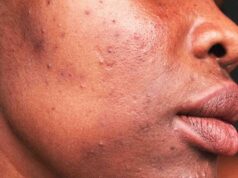QUESTION: Hello Doctor,
Is there any link between bad eating habits or poor diet and infertility? Does my diet affect my fertility level? Shalom.
Response:
Dear shalom, it is true there is a link between our diet and infertility.
However, it is first important to understand the terms involved in defining fertility; then to understand the difference between its causes and predisposing factors.
Diet and eating habits predisposing factors do not directly cause infertility.
In subfertility, the possibility of conceiving naturally exists but takes longer than average, on the other hand in infertility, the likelihood of conceiving without medical intervention is unlikely.
Poor Diet
Eating large amounts of processed or fast foods yet moving too little, drinking too much alcohol, eating out a lot, eating larger potions than you need, eating too many sugary drinks and comfort eating are regarded as poor diet.
Similarly, a folic acid free diet is also regarded as poor diet to women. Folic acid needs to be supplemented to a woman’s diet for at least 12 weeks before conception to prevent neural tube defects in the fetus.
Causes of sub-fertility
Almost always, the causes of subfertility and infertility are the same among males or females or both.
Among females:
Hypothalamic–pituitary–ovarian (HPO) axis dysfunction, ovulatory disorders secondary to ovarian factors, tubal disease and endometrial factors.
However, there is also a significant group of patients with unexplained diagnosis.
Among males:
Defective spermatogenesis, obstruction of the efferent duct system, failure to deposit sperm high in the vagina, and errors in the seminal fluid.
Predisposing factors
Several general factors may adversely affect the natural conception rate. These are:
– Age: natural conception declines significantly in the female after 35 years of age. This is due to the decline in the quality and numbers of eggs.
– Smoking: reduces fertility in females and semen quality in males.
– Coital frequency (number of times of having sex): stress and anxiety may affect libido and coital frequency and thus impact on fertility.
Recommended coital frequency is two to three times per week.
– Alcohol: excessive alcohol is harmful to the fetus, and can also affect sperm quality.
– Body weight: Over or under weight can affect ovulation; women with a body mass index (BMI) of >29 or <19 will have difficulty conceiving, because these extremes disrupt the function of the HPO axis.
– Drugs: non-steroidal anti-inflammatory drugs (inhibit ovulation), chemotherapy destroys rapidly dividing cells e.g. gametes); cimetidine, sulphasalazine, androgen injections (affects sperm quality).
– Occupational hazards: exposure to chemicals and radiation adversely affects male and female fertility.
Therefore, it is very important to optimize one’s health before conception because over weight similarly underweight disrupt the HPO axis.
Besides giving patients life style advice regarding conception, it is also imperative to advise them to take peri-conception folic acid up to 12 weeks gestation as this reduces the risk of neural tube defects.
Answered by Dr Binywasiki Molino of Mulago National Referral Hospital.






















